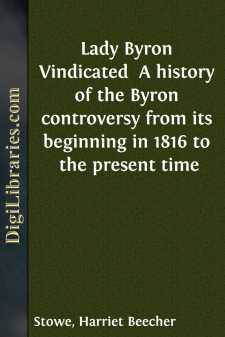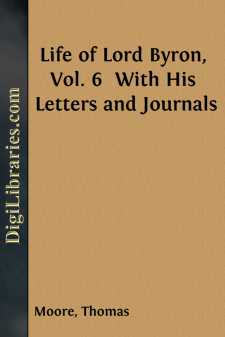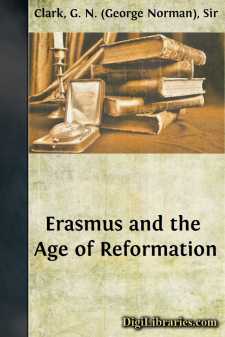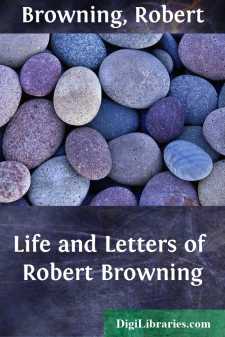Biography & Autobiography
- Adventurers & Explorers 15
- Artists, Architects, Photographers 16
- Business 2
- Composers & Musicians 14
- Criminals & Outlaws 5
- Editors, Journalists, Publishers 6
- Educators 1
- Entertainment & Performing Arts 3
- General 73
- Health, Exercise & Fitness 1
- Historians 3
- Historical 83
- Law Enforcement 1
- Lawyers & Judges 3
- Literary
- Medical 7
- Military 48
- Naturalists, Gardeners, Environmentalists 8
- Personal Memoirs & Diaries 226
- Philosophers 3
- Political 9
- Presidents & Heads of State 38
- Religious 38
- Rich & Famous 27
- Scientists 13
- Women 31
Literary Books
Sort by:
by:
Various
He was almost too good to be true. In addition, the gods loved him, and so he had to die young. Some people think that a man of fifty-two is middle-aged. But if R. H. D. had lived to be a hundred, he would never have grown old. It is not generally known that the name of his other brother was Peter Pan. Within the year we have played at pirates together, at the taking of sperm whales; and we have...
more...
PART I. CHAPTER I. INTRODUCTION. The interval since my publication of ‘The True Story of Lady Byron’s Life’ has been one of stormy discussion and of much invective. I have not thought it necessary to disturb my spirit and confuse my sense of right by even an attempt at reading the many abusive articles that both here and in England have followed that disclosure. Friends have undertaken the...
more...
by:
Thomas Moore
LETTER 508. TO MR. MOORE. "Genoa, February 20. 1823. "My Dear Tom, "I must again refer you to those two letters addressed to you at Passy before I read your speech in Galignani, &c., and which you do not seem to have received.[1] [Footnote 1: I was never lucky enough to recover these two letters, though frequent enquiries were made about them at the French post-office.] "Of Hunt...
more...
CHAPTER I INTRODUCTION This book is intended to deal with substance rather than with form. But, in estimating the work of a teacher who taught exclusively with the pen, it would be perverse to disregard entirely the qualities of the writing which so penetrated and coloured the intellectual life of the Victorian age. Some cursory estimate of Arnold's powers in prose and verse must therefore be...
more...
Harriet Beecher (Stowe) was born June 14, 1811, in the characteristic New England town of Litchfield, Conn. Her father was the Rev. Dr. Lyman Beecher, a distinguished Calvinistic divine, her mother Roxanna Foote, his first wife. The little new-comer was ushered into a household of happy, healthy children, and found five brothers and sisters awaiting her. The eldest was Catherine, born September 6,...
more...
by:
Jack London
Confession There is a woman in the state of Nevada to whom I once lied continuously, consistently, and shamelessly, for the matter of a couple of hours. I don't want to apologize to her. Far be it from me. But I do want to explain. Unfortunately, I do not know her name, much less her present address. If her eyes should chance upon these lines, I hope she will write to me. It was in Reno, Nevada,...
more...
PREFACE by G.N. Clark, Provost of Oriel College, Oxford Rather more than twenty years ago, on a spring morning of alternate cloud and sunshine, I acted as guide to Johan Huizinga, the author of this book, when he was on a visit to Oxford. As it was not his first stay in the city, and he knew the principal buildings already, we looked at some of the less famous. Even with a man who was well known all...
more...
by:
Helen C. Black
It is well worth encountering the perils of the sea, even in the middle of winter, and in the teeth of a north-east wind, if only to experience the absolute comfort and ease with which, in these space-annihilating days, the once-dreaded journey from England to the Emerald Isle can be made. You have resolved to accept a hospitable invitation from Mrs. Hungerford, the well-known author of Molly Bawn,...
more...
by:
Anthony Trollope
Chapter I. HIS RETURN FROM EXILE. Cicero's life for the next two years was made conspicuous by a series of speeches which were produced by his exile and his return. These are remarkable for the praise lavished on himself, and by the violence with which he attacked his enemies. It must be owned that never was abuse more abusive, or self-praise uttered in language more laudatory. Cicero had now done...
more...
by:
Robert Browning
Chapter 1 Origin of the Browning Family—Robert Browning's Grandfather—His position and Character—His first and second Marriage—Unkindness towards his eldest Son, Robert Browning's Father—Alleged Infusion of West Indian Blood through Robert Browning's Grandmother—Existing Evidence against it—The Grandmother's Portrait. A belief was current in Mr. Browning's...
more...











